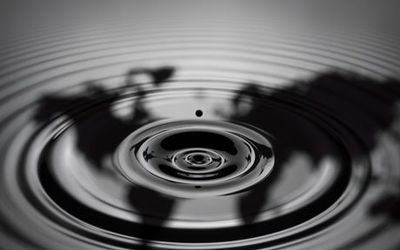PUMA Energy, the international fuel distributor owned by global commodity traders Trafigura and Angola’s state oil company Sonangol Holdings, was targeting organic growth and acquisitions in SA to match its expanding energy storage capacity in Southern Africa, Puma chief operating officer Africa Christophe Zyde said on Monday.
Puma’s expansion contrasts with the contraction by integrated multinational oil companies, which are trying to cut capital and operating costs as the oil price has fallen over the past two years, to touch a 12-year low of $27 a barrel last month. Chevron Global said last month it was inviting bids for 75% of its operations in SA, which include refining, storage and retail, through the Caltex brand.
Mr Zyde declined to comment on whether Puma Energy was bidding for Chevron’s South African business.
Puma was still relatively small in SA and intended to grow, through big and small acquisitions, at the right price, he said.
Last year Puma Energy bought Drakensberg Oil and 74.9% of Brent Oil, an owner of logistics and storage facilities and branded fuel stations.
Puma now has 123 retail sites in SA, including those of Brent Oil, which are being rebranded.
According to a Competition Commission investigation into the deal, after the merger with Brent, Puma Energy had less than a 5% share of the wholesale market for petrol and diesel in SA.
Mr Zyde said Puma has been investing in oil storage, with a 110-million litre terminal at Matola, which serves Southern Africa and a 46-million litre terminal being built by Island View Storage at Richards Bay, which Puma will lease.
Puma’s total storage capacity for the Southern African Development Community region is 275.5-million litres.
Asked whether it had any plans to build a refinery in Africa, Mr Zyde said Puma Energy had only two refineries globally, in Papua New Guinea and Nicaragua. Its preferred model was storage and distribution, not refining.
SA was an attractive country because it was a large market for fuel and was well regulated and administered, he said. Over the years, SA’s imports of clean fuel have been increasing, as the market has been growing and availability of locally refined product has not kept pace. Puma Energy has searched for some time for the right opportunities to enter SA.
Puma has grown rapidly in Africa. Five years ago it had a presence in only five countries on the continent; now it is in 19. The biggest obstacle to growth was attracting and retaining the right skills, Mr Zyde said.





















Change: 0.79%
Change: 0.68%
Change: 1.29%
Change: 0.34%
Change: 1.65%
Data supplied by Profile Data
Change: 1.38%
Change: -0.34%
Change: 0.79%
Change: 0.00%
Change: -0.19%
Data supplied by Profile Data
Change: 3.71%
Change: 3.12%
Change: 3.05%
Change: 2.91%
Change: 2.30%
Data supplied by Profile Data
Change: -0.05%
Change: -1.30%
Change: -0.14%
Change: 0.21%
Change: 0.14%
Data supplied by Profile Data